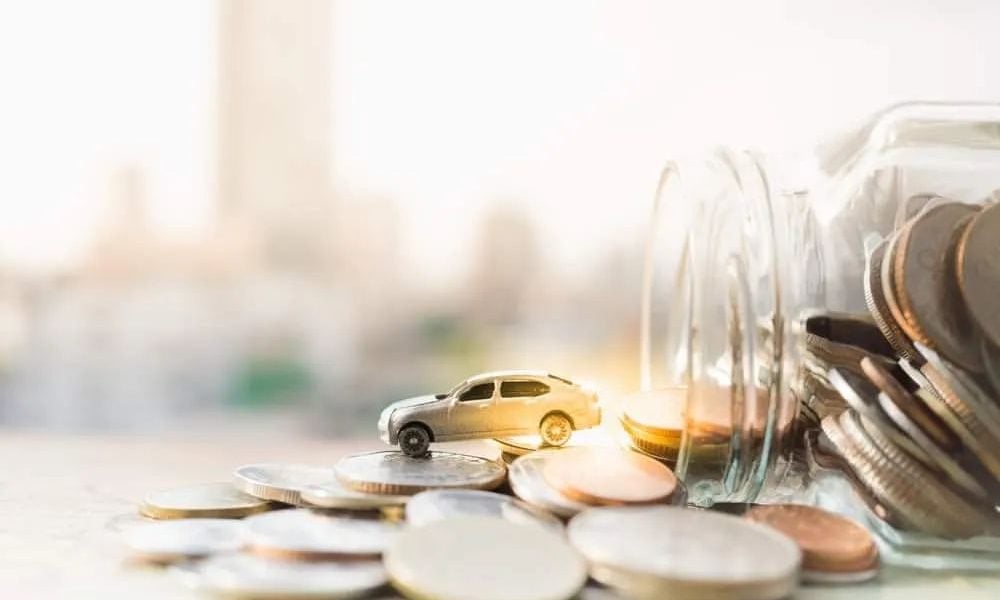
Who Gets the Insurance Check When a Car Is Totaled? The Ultimate Guide

When a major accident renders your car beyond repair, it’s not just the physical wreckage that needs sorting. The financial aftermath, particularly for those who receive the insurance payout when a car is declared a total loss, can also seem like a maze. So, who gets the insurance check when a car is totaled? This article will explore how it works and what to expect regarding insurance payments.
What Does It Mean for a Car to Be Totaled?
A car is typically considered totaled when the cost to repair it exceeds a certain percentage of its value—most insurance companies use the 75% threshold. Factors like the vehicle’s age, mileage, where the damage occurred, whether airbags deployed, and overall reparability play into this decision. When these factors point towards a total loss, the insurance company will opt to reimburse the policyholder for the vehicle’s current market value instead.
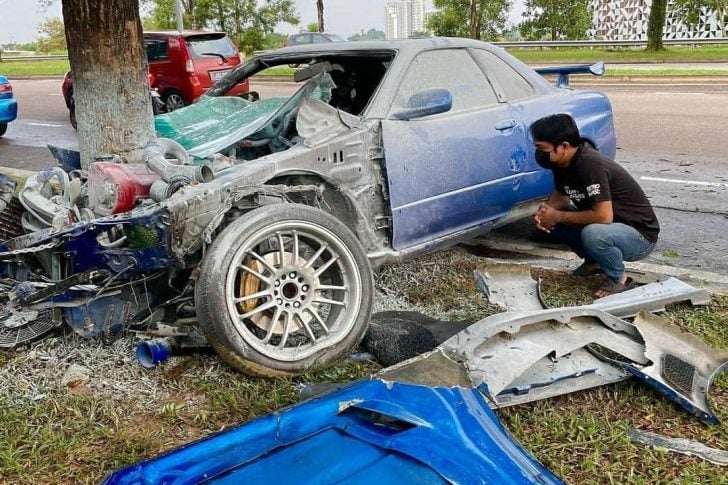
@supercar.fails | Instagram | A car is typically considered totaled when the cost to repair it exceeds a certain percentage of its value—most insurance companies use the 75% threshold.
Handling Totaled Vehicles: The Insurance Perspective
Once your car is declared totaled, the insurance company usually takes ownership. If you still owe money on your car, the insurance check first goes to your lender. After paying off the loan, any remaining amount will be sent to you. The entire insurance payment is yours if you own your car outright, minus any applicable deductible.
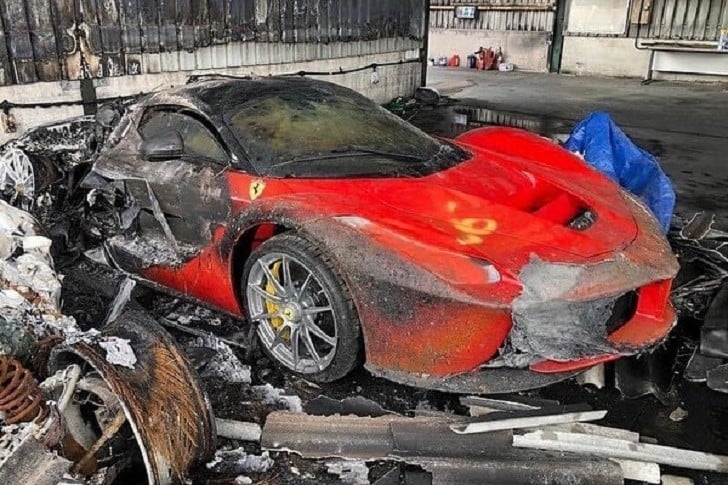
@supercar.fails | Instagram | Once your car is declared totaled, the insurance company usually takes ownership.
In cases where the owner keeps the car despite being totaled, it will likely carry a salvage title, indicating its status and potentially affecting its future use and insurability. Suppose the vehicle was part of a business operation, like a logistics fleet. You might also need to report the loss to specialized centers like the U.S. Accident Management Center (AMC) for further handling.
Who Gets the Insurance Check When a Car Is Totaled?
The simple answer is that it depends on ownership and loan status. If there’s an outstanding loan, the lender gets paid first. The remaining amount, if any, then goes to you. In scenarios where the car is owned free and clear, the entire assessed value of the vehicle post-accident is paid directly to you.
For instance, if your car valued at $20,000 is totaled and you have no outstanding loans, you would receive the full amount from the insurance company, adjusted for your deductible. However, if you had a $15,000 loan from which $8,000 was paid off, the insurance company would settle the remaining $7,000 with your lender, and you would receive the balance.
Insurance Processing Time and Coverage Types
The time it takes for insurance companies to process claims for totaled vehicles can vary. Typically, it might range from a few days to a few weeks, with some states imposing legal time limits to expedite these payouts.

Lukas Blazek | Unsplash | The time it takes for insurance companies to process claims for totaled vehicles might range from a few days to a few weeks
It’s essential to know the type of your coverage:
- Comprehensive Coverage: Protects against non-collision-related incidents such as theft, fire, or natural disasters.
- Collision Coverage: Pays for damage resulting from collisions, regardless of fault.
- Full-Coverage Insurance: Combines liability, collision, and comprehensive coverage, ensuring that the value of a totaled vehicle is covered under almost all circumstances, minus the deductible.
Clarity is crucial to understanding and navigating the nuances of what happens when your car is totaled and who receives the insurance check. Whether you’re dealing with an insurance company, assessing your coverage, or contemplating the conditions of your vehicle loan, being informed helps you manage the expectations and realities of such complex situations.
More inCar Insurance
-
`
Adults in Ohio Face Stricter Rules to Obtain Driver’s License
Ohio has passed a new law that will change the way adults under 21 get their driver’s licenses. Signed into law...
July 31, 2025 -
`
Gen Z Craves Career Guidance, But Their Parents Are Struggling Too
Gen Z is stepping into the future with curiosity and ambition—but they’re not doing it alone. A growing number of teens...
July 25, 2025 -
`
Do Car Insurance Companies Offer Pay-As-You-Go Plans?
Car insurance premiums often feel unfair to people who rarely drive. Yet, most traditional auto policies still charge a fixed monthly...
July 17, 2025 -
`
Why the Koenigsegg Sadair Spear Is the Ultimate Hypercar Beast
Koenigsegg has revealed a new beast—the Sadair’s Spear. Tuning its focus on raw performance and brutal speed, this hypercar marks the...
July 11, 2025 -
`
Which States Have the Safest—and Riskiest—Drivers in America?
Driving safety isn’t just about skill. It’s also about location. A recent nationwide report shines a spotlight on where drivers are...
July 4, 2025 -
`
How to Save on Tesla Car Insurance Without Compromising Coverage
Owning a Tesla often brings savings on fuel and a futuristic driving experience, but the conversation changes quickly when it comes...
June 26, 2025 -
`
10 Weird Cars That Turned Heads and Won Hearts
Some cars turn heads with speed, others with luxury—but a rare few grab your attention simply by being delightfully strange. From...
June 20, 2025 -
`
Next-Gen Jeep Cherokee Expected to Arrive by Late 2025
After a break of two years, Jeep is prepared to relaunch the Cherokee brand. The automaker confirmed the return with fresh...
June 12, 2025 -
`
9 Tips to Make Night Driving Safer and Less Frightening
Once the sun dips below the horizon, driving becomes more than just a commute—it becomes a challenge. Limited visibility, harsh glares,...
June 6, 2025



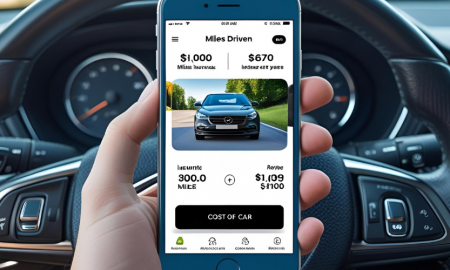

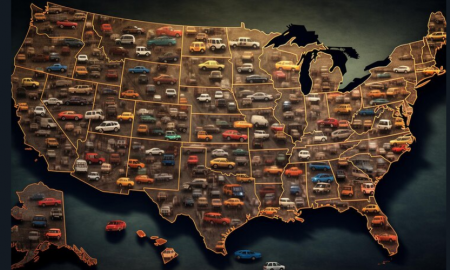
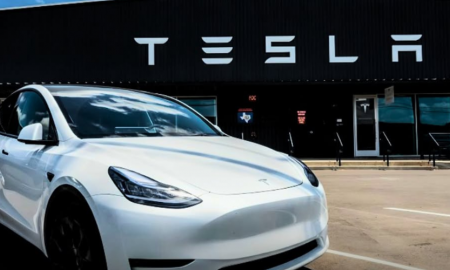

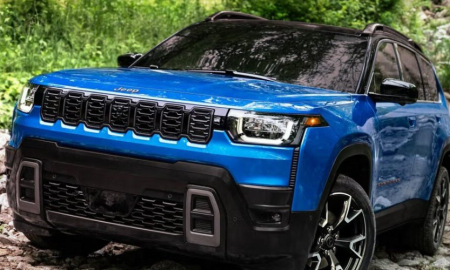



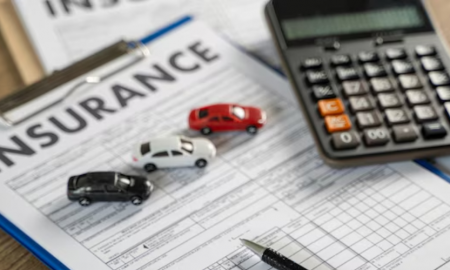

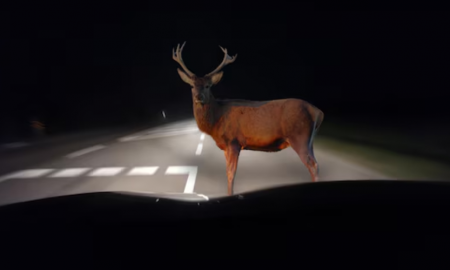
You must be logged in to post a comment Login